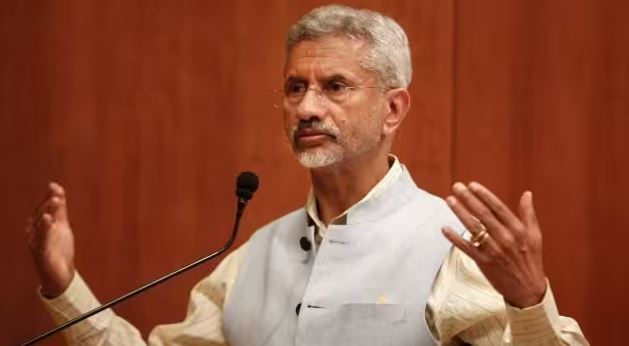
The former Japanese prime minister Shinzo Abe was praised for conceiving up the Quad, a strategic security conversation between Australia, India, Japan, and the United States, by external affairs minister S. Jaishankar on Thursday.
The Quad, according to Jaishankar, was crucial for the advancement of India-Japan relations.
He was giving a speech at the publication of a book on Abe, who was killed almost a year ago.
Sanjaya Baru, a former journalist and public policy expert, compiled “The Importance of Shinzo Abe: India, Japan, and the Indo-Pacific,” which includes 16 pieces by diplomats, scholars, and journalists from Japan and India.
Japan is one of the few foreign policy topics where there are no disagreements, according to Jaishankar, whether you take the extreme right or left in India.
Jaishankar said, “To see it (the India-Japan relationship) today as anti-China or anti-West is to do injustice to both countries… It should be based very much on what our hopes and aspirations are for the future. “The kind of relationship that he (Abe) would have visualised, it should be positively defined.”
The minister stated, “In the last ten years, the ‘New Japan has met the New India. This is especially evident in the chemistry between the prime ministers of the two countries.” Jaishankar said that at the time of Abe’s passing, “Abe was preparing Japan for a turbulent, unpredictable world…a new, different period. He was a creative tactician.
Abe’s sympathetic and intimate side was recalled by Hiroshi Suzuki, the Japanese ambassador to India, who spent years serving as Abe’s personal secretary. “The first impression I get of Abe is of a leader who prioritised ideals and ideas like liberty, democracy, respect for human rights, and the rule of law. And he added that India is a fantastic country that upholds these core principles.
Every time there was a bilateral meeting between Japan and the US, he would inquire as to whether a trilateral meeting between India, Japan, and the US could also be accommodated. “He would often say that Japan and India should lead the region and the world,” Suzuki remembered.
Abe, according to Baru, was not only a wonderful son of Japan but also a renowned Asian leader and a statesman who was well-respected around the world. “Abe re-energised a nation that had begun to stagnate through the 1990s, shaped the geopolitics of the Indo-Pacific region, and laid the economic, social, political, and security foundations for the emergence of a “New Japan” in the 21st century,” he said, adding, “Abe was above all a true friend of India.”
The new phase in the bilateral relationship was defined, according to Baru, by Abe’s 2007 visit to India and his historic speech to the Indian Parliament on what he called the “Confluence of the Two Seas – Pacific and Indian Oceans.”
Deepa Gopalan Wadhwa, a former ambassador to Japan who also wrote an article for the book, discussed Abe’s significant interest in women’s advancement and what India is doing. “Abe once walked on stage impromptu and assured that Japan would do its best towards this mission during a panel discussion on how Swachh Bharat has contributed towards sanitation and security issues pertaining to women,” she said.

















